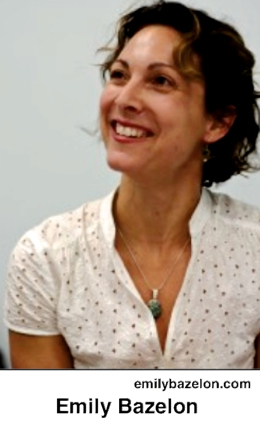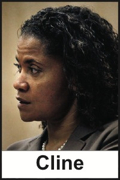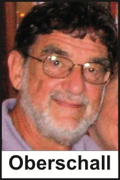Rascals case in brief
In the beginning, in 1989, more than 90 children at the Little Rascals Day Care Center in Edenton, North Carolina, accused a total of 20 adults with 429 instances of sexual abuse over a three-year period. It may have all begun with one parent’s complaint about punishment given her child.
Among the alleged perpetrators: the sheriff and mayor. But prosecutors would charge only Robin Byrum, Darlene Harris, Elizabeth “Betsy” Kelly, Robert “Bob” Kelly, Willard Scott Privott, Shelley Stone and Dawn Wilson – the Edenton 7.
Along with sodomy and beatings, allegations included a baby killed with a handgun, a child being hung upside down from a tree and being set on fire and countless other fantastic incidents involving spaceships, hot air balloons, pirate ships and trained sharks.
By the time prosecutors dropped the last charges in 1997, Little Rascals had become North Carolina’s longest and most costly criminal trial. Prosecutors kept defendants jailed in hopes at least one would turn against their supposed co-conspirators. Remarkably, none did. Another shameful record: Five defendants had to wait longer to face their accusers in court than anyone else in North Carolina history.
Between 1991 and 1997, Ofra Bikel produced three extraordinary episodes on the Little Rascals case for the PBS series “Frontline.” Although “Innocence Lost” did not deter prosecutors, it exposed their tactics and fostered nationwide skepticism and dismay.
With each passing year, the absurdity of the Little Rascals charges has become more obvious. But no admission of error has ever come from prosecutors, police, interviewers or parents. This site is devoted to the issues raised by this case.
On Facebook
Click for earlier Facebook posts archived on this site
Click to go to
Today’s random selection from the Little Rascals Day Care archives….
Click for earlier Facebook posts archived on this site
Click to go to
Today’s random selection from the Little Rascals Day Care archives….
What is so sad as a debunker with no bunk?
 June 12, 2014
June 12, 2014
“He thinks the continued treatment of these cases as a modern-day episode of mass hysteria does disservice to children and even puts them in danger.
“ ‘We have, over the last 20 years, discounted the word of children who might testify about sexual abuse,’ he writes. ‘We have become more worried about overreacting to child sexual abuse than we are about underreacting to it.’
“If that were the legacy of the day-care cases, it would be a damning one. But when I spoke to psychologists in the field – those Professor Cheit cites respectfully, as well as those he attacks – they gave a different account of the science at the heart of this history….”
– From “Abuse Cases, and a Legacy of Skepticism” by Emily Bazelon in the New York Times (June 9)
Thank you, Ms. Bazelon. In the category of “fat books in desperate search of a reason to exist,” Cheit’s “The Witch-Hunt Narrative” belongs right up there with William D. Cohan’s contemporaneous “The Price of Silence,” an account of the Duke lacrosse case that sympathizes not with the railroaded (and later exonerated!) defendants but with District Attorney Mike Nifong, who was disbarred and briefly jailed for conspiring to rig the case against them.
At the core of each book is the unsubstantiated contention that something surely must have happened, either at a Durham party house and at countless day cares. Fortunately, Cohan and Cheit can only gratuitously smear the reputations of innocent defendants, not put them in prison – unlike Little Rascals expert witness Mark “where there’s smoke there’s fire” Everson.
Tracey Cline, Mike Nifong and H.P. Williams
 March 21, 2012
March 21, 2012
“In July 1993, (Tracey Cline) headed to the state’s northeast corner to work as a prosecutor in a cluster of counties near Elizabeth City. Her stint there was short-lived, just six months, and unremarkable, according to supervisors….
“ ‘I hated to see her leave….’ (former District Attorney H. P.) Williams said. ‘I would have given her a good recommendation.’ ’’
– From the News & Observer of Raleigh, February 19, 2012
Williams may have nothing to say on behalf of the innocent Little Rascals defendants, but he seems ever eager to speak well of Cline and Durham’s other epically unethical DA.
An expertise ‘contrary to science and common sense’
 March 7, 2013
March 7, 2013
Anthony Oberschall’s “Why False Beliefs Prevail: the Little Rascals Child Sex Abuse Prosecutions” appeared in “Essays in Honor of Raymond Boudon” (2000).
Most saliently, the UNC sociologist argues that “hysteria” and “moral panic” are inadequate to describe what happened in Edenton. Rather, he sees the town – and the Little Rascals defendants – as victims of the purveyors of “pseudoscience”:
“When child sexual abuse became a national issue, the medical profession, academic psychology and social science were just starting to study it scientifically…. The legal profession lacked experience with trial testimony of pre-schoolers and admission of hearsay testimony by parents and therapists….Meanwhile thousands of child sex abuse allegations had to be dealt with.
“In the absence of proven knowledge, a child sex abuse industry of self-appointed ‘experts’ based on pseudo-science filled the demand for training and informing child protection service workers, social workers, police investigators, prosecutors, therapists and others…. They were convinced they were saving America’s children, even though their methods and knowledge were contrary to science and to common sense. In Edenton, the prosecution and the investigators relentlessly labored to supplant common sense with false beliefs based on pseudo-science, (and) they succeeded….”
Working with UNC journalism student David Loomis on his master’s thesis detailing news coverage of the case, Oberschall “tried to survey Edenton households by mail (picked names at random from a phone book), but got less than a 10 percent return rate. It was obvious people there didn’t want anything to do with an outsider, a scholar.”
Rebuffed, Oberschall drove to Edenton himself and conducted perhaps a dozen interviews, which he made use of both in “Why False Beliefs Prevail” and in this more detailed draft working paper from 2010.
When ‘backlash spewed,’ Judy Abbott blamed ‘falsehoods’
Oct. 19, 2012
“The backlash spewed from the guilty verdicts in the Little Rascals Day Care case have (sic) been painful and difficult to hear and live with. Those of us who advocate for the rights of children often feel that the gains made on their behalf over the past few years are eroding under falsehoods propagated by individuals who’s (sic) motives are undetermined.”
– From “Little Rascals Day Care Center Case: The Bitter Lesson, a Healthy Reminder” by Judith Steltzner Abbott (1994)
If the editors of the Journal of Child Sexual Abuse set aside six pages in hopes therapist Judy Abbott might respond thoughtfully to the Little Rascals “backlash,” they were surely disappointed. Instead, she dodged reality with platitudes and self-congratulation.
Of course, even to acknowledge the concerns of her falsehood-propagating critics (the ones with “motives undetermined”) might have put at risk her nomination for the Distinguished Women of North Carolina Award.











0 CommentsComment on Facebook